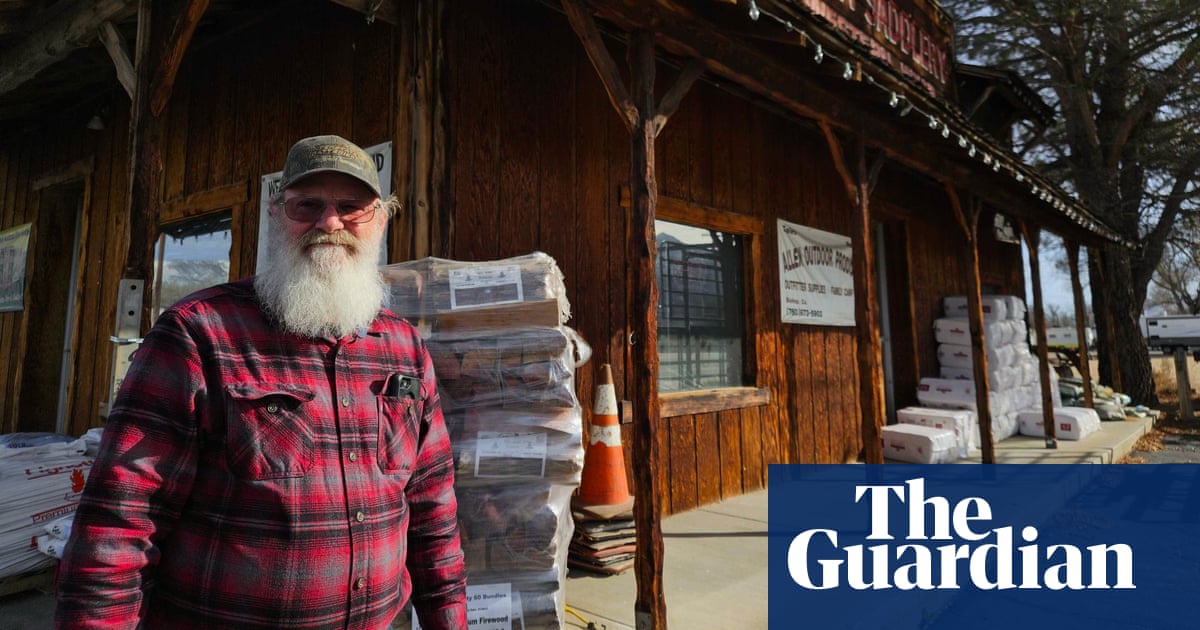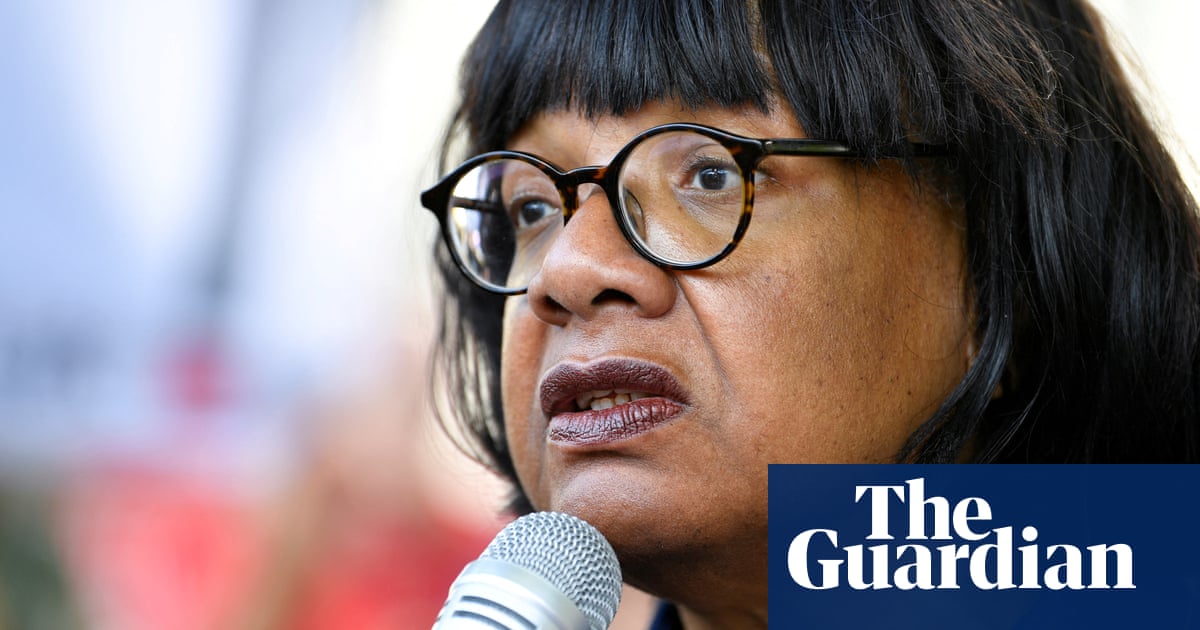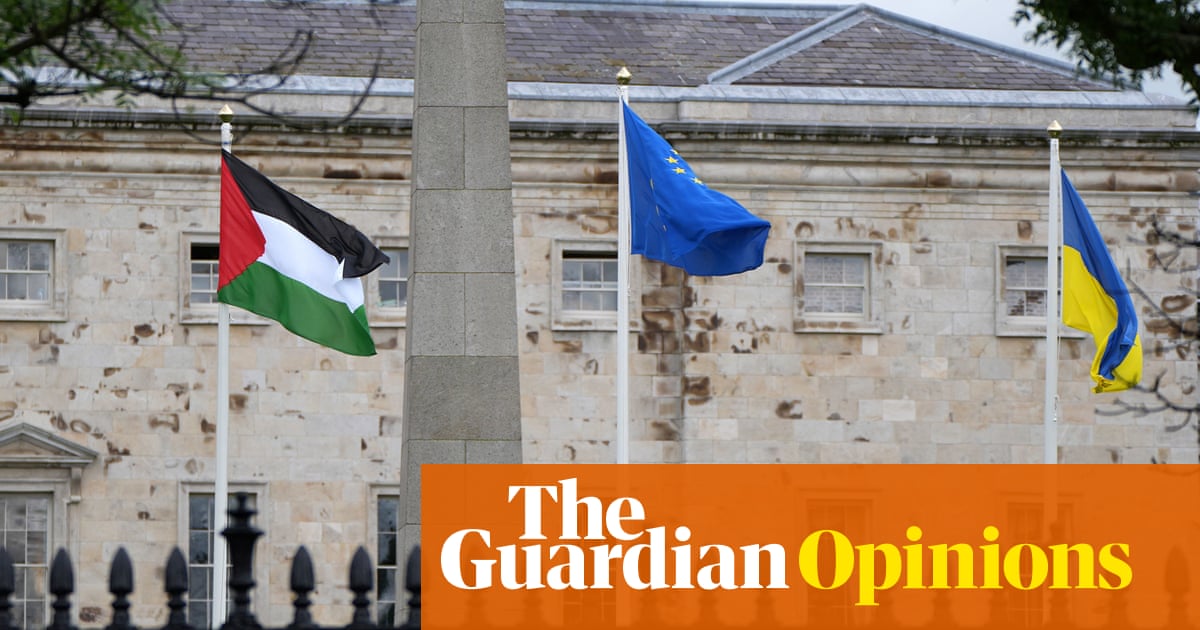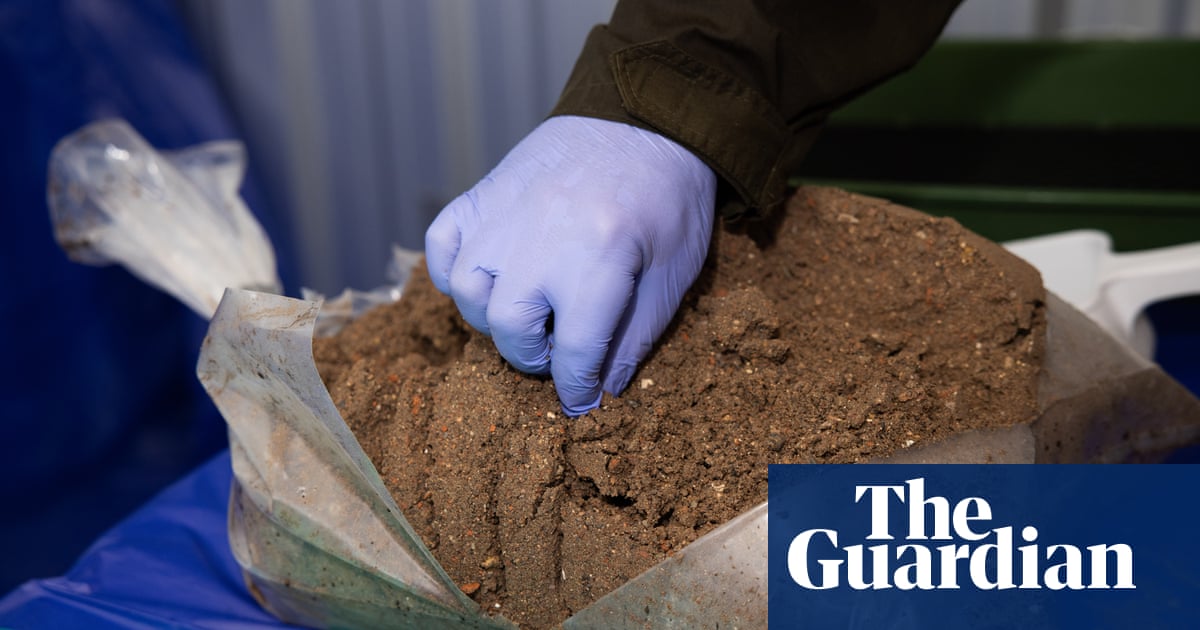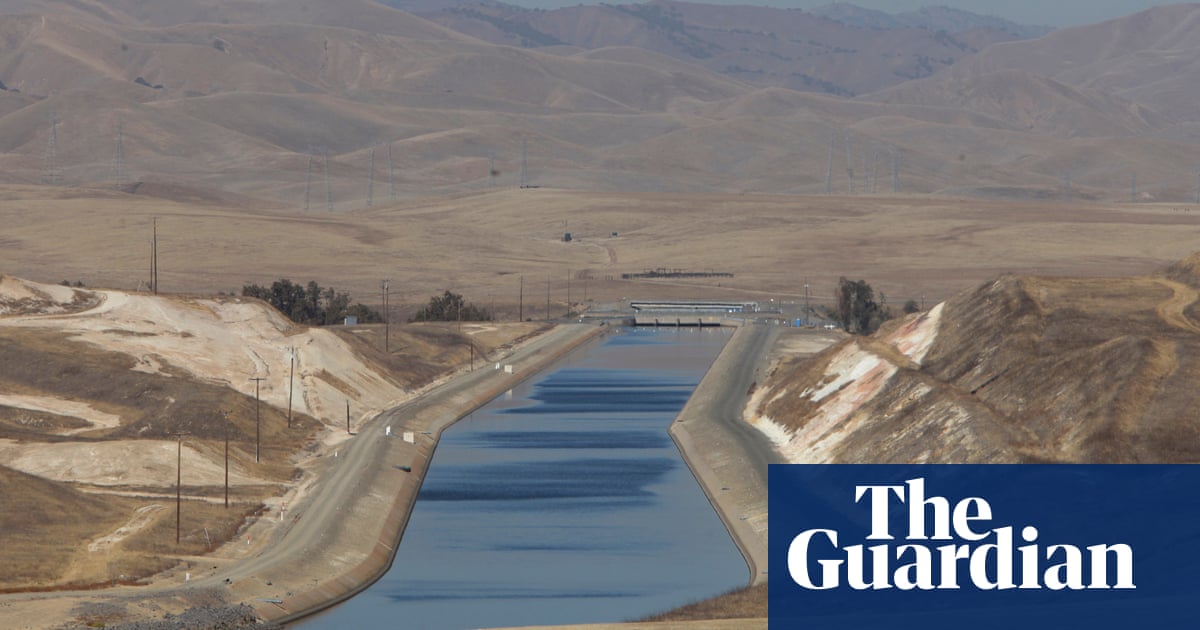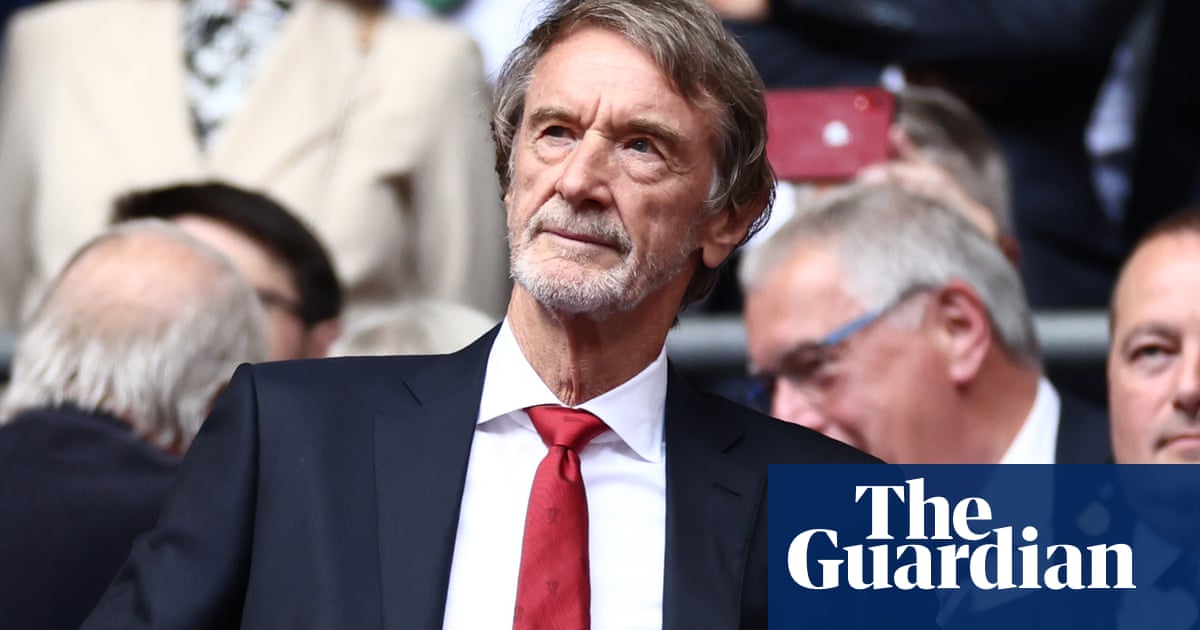This article is reported by AfroLA and co-published by AfroLA, Guardian US and the Mammoth Sheet. Itâs the first of several stories examining the impact of Los Angelesâs extensive landownership in the Owens Valley.
A red horse statue perched on a 12ft pole greets drivers coming to the town of Bishop from the south. Itâs one of the first landmarks here, part of Mike Allenâs corrugated metal feed store â a local institution that sells camping gear, livestock feed and moving equipment in this expansive region of inland California.
But Allen desperately wants to sell it so he can retire.
âI own the building, the inventory, and the asphalt for the parking lot,â Allen said. âBut I donât own the land under it.â
And so Allen canât get rid of it.
The land under Allenâs store belongs to an owner 300 miles away: the city of Los Angeles, specifically its department of water and power (DWP).
LA has owned large swathes of the Owens valley, where Bishop is located, for more than a century. The city first swooped in in the early 1900s, at the dawn of Californiaâs water wars. As the metropolis grew at breakneck speed, its leaders searched for ways to sustain that population, and when they entered the Owens valley, they found what LA lacked: plenty of water.
Over the next decades, LA agents secretly, and aggressively, worked to buy up Owens valley land and take ownership of the water rights that came with those parcels. By 1933, DWP had gobbled up the large majority of all properties in the towns of Bishop, Big Pine, Independence and Lone Pine.
Today, DWP owns 90% of privately available land in Inyo county, which encompasses the Owens valley, and 30% of all the land in neighboring Mono county. Aqueducts transporting water from both counties provided 395,000 acre-feet of water to LA last year â about 73% of the cityâs water supply.
Stories of LAâs brazen land grab in the Owens valley have been told for decades â it was loosely depicted in the 1974 film Chinatown. And the fierce legal battles that have ensued, including over the environmental impact, have made regional headlines for years.
But residents, business owners, and some municipal leaders in this rural region say LAâs landownership in the valley has taken on a new, and crippling, dimension in recent years.
DWP has taken steps to exert even greater control over its land holdings in the valley. An AfroLA review of hundreds of documents obtained through records requests, as well as interviews with municipal officials, residents, legal experts and business owners, reveals DWP started changing the terms of leases in 2015, and formally added restrictions on the transfer of leases from one owner to the next in 2016.
DWPâs moves have meant that hundreds of families who have built lives in the Eastern Sierra region have seen their plans upended, often being left with the stark choice of abandoning their livelihoods or fighting DWP.
For Allen, the owner of the feed store, the 2016 changes mean that he canât retire to Montana, where his wife moved seven years ago.
Selling the store had always been Allenâs retirement plan. But since the new owner will not be able to transfer their lease or sell the business to recoup their investment, he hasnât found a buyer. Meanwhile, his own lease has gone into holdover status: he continues to pay his rent and abides by the terms of his lease, but he can be evicted at will with 30 daysâ notice.
Leases lapsing into holdover status have long been an issue, but between 2015 and 2023, more leases have gone into holdover than did before.
Allen now faces a brutal choice: continue to make month-to-month payments on an inactive lease, or surrender the building to DWP and abandon his business. If he lets the lease go back to DWP, he has to liquidate all of his inventory and demolish all of the improvements he has invested in over the years â including the asphalt in the parking lot and the building itself. Thatâs just a standard clause in DWP leases.
Since DWP implemented the changes, at least 13% of leases in Inyo county have reverted back to DWP control, an analysis of property tax records reveals.
Los Angeles is not alone in importing water from hundreds of miles away. San Francisco obtains most of its water from the Hetch Hetchy reservoir and water system in Yosemite, and the California state water project gets most of its water from rural areas in northern California. LAâs also not the only city that secures its water supply through land holdings â New York City has similar landlord-tenant relationships. But DWP in the Owens valley is the âposter childâ for negatively impacting the broader local economy, according to Greg James, special counsel for Inyo county.
Photograph: Dana Amihere/AfroLA
As water becomes increasingly scarce in a more extreme climate, urban communities like Los Angeles will increasingly need to rely on imported water, obtained at the expense of the environment and economies of rural and Indigenous communities. Los Angeles claims to be working toward diversifying its water portfolio through stormwater capture, recycled water and conservation as well as importing water from the Colorado River basin and northern California. But even after conservation efforts, LA projects it will still need to get about 30% of its water from the Owens valley by 2045, meaning the city and the valley are locked in a relationship for the foreseeable future.
Los Angeles DWP did not respond to a detailed request for comment from AfroLA. DWPâs Eastern Sierra division also did not respond to a request for comment.
The Land of Flowing Water
Inyo county is a land of extremes. The region is larger than the state of Vermont but fewer than 20,000 people call it home. In its west, the peaks of the Eastern Sierra tower 10,000ft above the Owens valley. In its south lie the desert landscapes of Death valley. Brave hikers can trek from Mt Whitney, the highest point in the continental US, to Badwater Basin in Death valley, the lowest point.
During winter, the Owens valley ground is parched. But come spring, when snowmelt runs from the Sierra and White Mountains down to the Owens River, the valley turns lush green. The Paiute, who have lived in the valley for thousands of years, named it Payahuunadü, the Land of Flowing Water.
William Mulholland, LAâs famed water and infrastructure czar, realized the valleyâs potential when he camped in the area in 1904. LA agents soon went on a buying spree, locking in land and water holdings.
In the late 30s, the city briefly authorized the sale of about half of Bishopâs properties back into private ownership, but by the mid-40s, DWP had stopped that practice. Between 1967 and today, DWP added 10,000 more acres in the valley to its holdings.
Today, LA owns 252,000 of the countyâs 6.5m acres. The federal government, which owns the land in Death Valley national park and Inyo national forest, holds much of the rest.
DWPâs extensive holdings make it the de facto landlord for many of Inyo countyâs residents. DWP leases the majority of the region back to those living there â to the county government, to ranchers, to veterinarians and retailers, to families who have lived here for generations and people compelled to move in because of its stunning outdoors.
Living here had long been affordable, too. LAâs leases were inexpensive, and for decades, the lease process was simple and straightforward, valley residents said. Much like the way many mobile home parks operate, property owners own the structures of their homes and businesses, but not the land underneath. DWP leases them that land through agreements with fixed terms, at fixed rates. Lease holders pay either month-to-month or yearly. When a lessee previously sold their home or business, the lease for the property transferred to the new owner after a credit score check, lease holders recalled. Lease transfers were hardly ever rejected, they said.
That changed in 2016. That year, DWP ruled the way it had been treating leases conflicted with the 1924 Los Angeles city charter, which outlaws the sale or lease of city property except at public auction. From then on, DWP has only allowed leases to be transferred once. That meant an existing tenant could pass on their lease, but the new tenant could not, and instead would have to let the land revert back to LA control.
If leases go out to bid, DWP auctions the lease off to the highest bidder. Under the old system, the lessee was able to profit directly from the sale of their business. Now, DWP reaps the financial benefits of the auction.
DWP retroactively applied this policy to leases established before 2016. For lessees like Mike Allen, who have leased for decades, it has devalued their businesses and made them difficult to sell, because a new owner has no guarantee of recouping their costs.
The department carved out an exemption for families, allowing leases to transfer within a family an unlimited number of times.
âFor 100 years theyâve never cared,â said Mark Lacey, a Lone Pine resident and rancher who sits on the Owens Valley Committee, a non-profit that helped negotiate environmental mitigations in a water agreement between LA and the county. âNow all of a sudden, you know, somebody decided, âWell, weâre going to actually follow the letter of the law based on the LA city charter that says, you know, we canât do this. We have to put [leases] out to bid.ââ
Many lessees often only learned of the changes when they went to renew their leases, or tried to transfer them.
Tom Talbot was the valleyâs veterinarian for more than 45 years. Talbot owned Bishop veterinary hospital, a yellow cottage on the north side of Bishop near the intersection of Route 395 and Route 6. Itâs the only full-service vet practice for hundreds of miles in every direction.
In 2015, Talbot wanted to retire from medicine while still healthy enough to ranch full-time. But when he went to sell the hospital and transfer his lease, he said, he found completely rewritten rules.
Talbot had hoped his son-in-law Tyler Ludwick, and Nicole Milici, who had volunteered working at the clinic since she was a teenager, would jointly take over the business.
But the new transfer policy meant Milici could not be put on the lease. As a relative, Ludwick could. âWeâre 50% partners in the business,â said Ludwick. âBut itâs all me on the lease.â
The lease structure forced Ludwick to take on more risk, he said in an interview, leaving him at the mercy of changes to his lease terms. But it was just the start of the veterinariansâ problems.
âItâs just a giant handcuff that completely stymies any possibility of growth, equity, business advancement, because you donât have anything real to sell,â Ludwick said.
Ludwickâs lease has been expired for years, and DWP hasnât renewed it. Without a lease active for the long run, itâs been hard to secure funds for repairs and improvements, he said.
The yellow and brick building that houses the clinic is 60 years old and ârotting out from under usâ, said Ludwick.
After Talbot transferred his lease to Ludwick, lease policies changed again. Starting in 2016, the family transfer policy was limited to transfers between parents and children, grandparents and grandchildren, and between spouses. As Talbotâs son-in-law, Ludwick would never have been able to take over the lease.
Ludwick and Milici recently purchased an out-of-business Ford dealership on some rare non-DWP-owned private land. They built a brand new veterinary hospital on the land and they plan to use their current lease to provide specialty care, such as physical therapy.
âThe good news is we got something that is ours,â said Ludwick. âIt gives us freedom.â
Reagan Slee, owner of a sporting goods store, went through a different set of disappointments.
In 2019, DWP changed its stance on selling properties to lessees. The new policy allows some business owners the chance to purchase the land they are leasing. Sleeâs store, filled with hunting and fishing gear, was at the top of that list.
Appraisers appraised, surveyors surveyed, and more than a year later Slee had a purchase agreement with the city of LA. Thatâs where progress stopped.
âThe price was fair,â Slee said. He put money in the bank, then waited. More than 18 months have passed since Slee signed his purchase agreement.
âThere was some excitement a year or two ago where we thought, âOK, this is finally going to happen,ââ Slee said. âBut now, I would be surprised if they called and said, âHey, weâre ready to move forward.ââ
Sleeâs lease expired in 2017, so he, too, is in holdover status. It would take more than a year to draft a new lease in order to sell his business, he said.
Meanwhile, Slee struggles to upgrade or perform maintenance on his store. âYouâre invested in something that is unknown, that is not yours and then there is no date attached to it. The value of the business is worth almost nothing, because if I was to go sell, it canât be transferred.â
According to Slee, DWP could keep the lease in holdover for 15 years, or it could pull the plug tomorrow. DWP did not respond to questions about Sleeâs case.
Since the transfer policies went into effect nearly a decade ago, approximately 20 leases have changed hands, according to AfroLAâs review of tax assessor data.
Meanwhile, at least 49 of DWPâs 354 leases and use permits in Inyo county have been removed from circulation and not put back out to bid. Use permits, which function similarly to leases, are âagreements for private useâ, according to the aqueduct operations plan. These include peopleâs backyards, pasture for horses and other uses.
Tamara Cohen, a former Inyo county public health officer who served for 23 years, saw the use permit for her backyard return to DWP control. For years, she lived on a multi-home lot with two business partners, Kenney Scruggs and Benett Kessler, and a shared 1.3-acre backyard. The homes and the land underneath them were in a trust, with Scruggsâs name on the use permit. When Scruggs died, the DWP agreement passed to Kessler. And when Kessler passed away, Cohen was ready to take it over in turn. Instead, a DWP real estate officer paid her a visit, and told her to vacate the yard within 60 days.
The rules had changed since 2013, when Kessler, an investigative reporter who spent her career monitoring DWP, took over the agreement, Cohen recalled the agent saying. Because the agreement was held in a trust, the agent said, it was taken out of circulation and would need to go to auction instead of being transferred.
The agent didnât seem happy about the prospect of an auction either, Cohen recalled: â[He] was pretty clear with us that going for the bid process was just really a hassle for him to do,â said Cohen. âHe said they are trying to get rid of these kinds of [backyard] leases.â
Cohen was later given until the end of the original agreement, an additional 18 months, to clear out and vacate the land. This included ripping out a patio and Scruggsâ garden. Now there is nothing but dirt and locust trees. Last spring, Cohen spent $7,000 to remove the dead vegetation on DWPâs property in order to prevent flooding and fires.
âItâs disconcerting. The trees have come down on what used to be leased land and itâs scary â itâs such a fuel for fires,â Cohen said, pointing to the dead locust trees that line the creek behind her home. âThat used to be a lease that was maintained, and now itâs not. Itâs a fire risk.â
The cost of drought
The circumstances LA found itself in when it applied the lease changes were similar to the ones it faced when it arrived in the Owens valley more than a century ago: it was desperate for water.
If LAâs 200,000 residents were thirsty in 1904, today, the city has a daunting task of servicing 3.8 million people living in an ever-warming climate. Much of the south-west US has faced crippling drought conditions at various points in past decades, with states and cities competing for few resources.
DWP has also seen its operations in the Eastern Sierra curtailed. The origins of a trio of lawsuits settled between the late 80s and the early aughts are long and complicated. But the outcome of the suits, initiated over rules on environmental protections, legally requires DWP to leave hundreds of thousands of acre-feet of water in Inyo and Mono counties for the towns; people, including Indigenous nations; and wildlife of the region.
The drought lasting from 2011 to 2016 marked the driest years ever recorded in California. In 2014, internal DWP documents show, department staff recognized it needed to make changes to âprevent waste of waterâ in some of its most important leases: those of Inyo countyâs ranchers.
The majority of acres leased by DWP in the Eastern Sierra are to ranchers, who graze their herds in the shadows of rugged Sierra Nevada mountains.
Ranchers and DWP have a âsymbiotic relationshipâ, said Scott Kemp, whose family ranches more than 1,000 cattle on department land, one of the largest herds in the valley. âWe take care of the land ⦠People from Los Angeles can come up here and fish, and do what they do.â
A 2006 internal agency document describes the relationship as such: âThe ranch lessees serve as stewards of the land and monitor and manage their leases consistent with LADWPâs goal of providing a reliable high quality water supply to Los Angeles. With the ranch leases providing this function, LADWP is able to concentrate its personnel on maintaining and operating water conveyances.â
In 2014, amid the drought, DWP proposed to the ranchers to change their lease terms to limit the amount of irrigation water they receive as part of their leases in years of normal water supplies. The department also proposed to allow DWP to provide water at its sole discretion in years with low snowmelt from the mountains, and place restrictions on water for cattle to drink.
Inyo countyâs water department responded that those changes could violate the 1991 water agreement between the county and DWP.
The proposed lease changes led to conversations between DWP and the trade group representing the ranchers. Both parties agreed on restrictions for how water, particularly for cattle to drink, would be used. They also agreed that ranch lessees from then on could only transfer their lease once. They agreed that DWP would keep the proceeds from leases that would be auctioned off instead of transferred.
A year later, DWP attempted to cut water off from the ranch lessees a second time. In a 27 April 2015 letter, DWP informed ranch lessees it would cut off their water supply in three days. According to a letter dated two days later, âplainly stated, there is insufficient water to meet all water usersâ needsâ. Concerned community members and the county met with DWP. The solution? Diverting some water destined for Owens Lake, which helped keep toxic dust from the dry lakebed out of the air, to irrigation water for ranchers.
Even though the transfer limits originated with the ranchers, the department applied the policy broadly. On 15 November 2016, commercial lessees and Inyo county supervisors grilled the aqueduct manager about the lease changes during a board meeting.
The county supervisor Jeff Griffiths told the then DWP aqueduct manager he hoped he and the city understood the repercussions of imposing the lease-transfer restrictions the ranchers had agreed to on commercial lessees as well. âThis could be the largest economic impact to the community since LAâs original acquiring of Owens valley land,â said Griffiths.
A DWP memo on the origin of the one-time assignment policy that was included in emails between DWP real estate staff and the then board president, Mel Levine, in 2016 only addresses ranch leases, and explains the changes were designed to bring the lease transfer process into compliance with the Los Angeles city charter and state law protecting DWP lessees in Inyo county.
But reporting by AfroLA shows the one-time assignment policy and the family transfer policy are being applied to commercial leases and use permits, such as Cohenâs backyard.
The restrictions that have been imposed on how much water LA can pull out of Inyo county, either through negotiations with the county or the courts, have been extremely costly for the city.
Internal DWP documents indicate that DWP has spent $30m-$40m annually buying water from southern Californiaâs metropolitan water district to offset the water it now leaves in Inyo for the ranchers. The water DWP has been required to provide to Indigenous communities, for environmental mitigation and for agriculture since the water agreements costs the agency at least $124m annually, according to an internal briefing book.
A way of life
Though long constructive, the relationship between DWP and some ranchers has been strained by years of drought and lease changes.
âDWP is nice to us in the wet years,â said Talbot, the former veterinarian, whose ranch is located in the picturesque Round valley just north of Bishop.
In years water is plentiful, the department releases more water and provides flood control measures, Talbot said. But in dry years, DWP limits the ranchersâ water allocation to the minimum it is legally required to provide, he said.
Many Inyo county ranchers have been affected by severe cuts DWP has made to water allocations in Mono county, which doesnât have the same legal protections as Inyo county.
Mark Lacey said he had to look for pasture land as far away as Oregon and Nebraska when DWP cut water to Mono county in 2015.
âI got transportation costs going up and then coming back. And then I had to pay for that pasture while I was there, as well as everything I have from DWP,â he recalled. âThe transportation costs were horrendous.â
âAfter 2016, I couldnât afford to do what I did. The price of cattle just didnât allow me to make those moves,â he said. âFreight was too high. Pasture elsewhere either wasnât available, or it was poor, [the price] was too high.â
Lacey has seen every drought in the Owens valley since the 70s. He said the 2011-16 drought was not as bad as the 1980s drought, but the impacts were more acute because of the water shutoffs.
For some in the county, the changes to the leases do not outweigh the benefits of LAâs land ownership. The county supervisor Jen Roeser said the agencyâs presence in Inyo has been critical to maintaining the rural lifestyle residents enjoy.
Roeser lives in a mobile home on a DWP lease sheâs had for decades. âItâs our whole lifestyle. And our purpose in life that we felt we were given was to operate a quality business in the mountains,â she said, one of her dogs napping in the shade of the black locust trees.
Roeser and her husband recently retired from running a mule packing business, which serves tourists hiking deep into the Sierra backcountry and also serves as one of the only ways to fight fires high up in the Sierra Nevada mountains. Bishopâs home to a week-long mule rodeo, and Roeser is a mule rodeo champion.
â[Weâve] introduced families and tourists to amazing experiences that impacted their lives and gave them memories that last generations, and we hear from hundreds of people every year that have memories that are still with them from pack trips. And these leases make that possible,â said Roeser.
On the other side of the Sierra, Roeser explained, the lease rates of winter pasture land have grown increasingly expensive. DWP land, she said, is higher quality than alternatives.
DWP, she added, also stimulates local economies as the countyâs largest employer. It provides well-paying jobs â employing engineers and scientists and staff maintaining its infrastructure â with good benefits for local residents, including multigenerational families who live in the county but work for the city of Los Angeles, she said. DWPâs payroll in the Owens valley was approximately $60m.
As Los Angeles takes steps to diversify its water sources, the Eastern Sierra region will still make up a critical supply of the cityâs water needs. For the Owens valley, that means a continuation of good jobs, but also the continued presence of a landlord 300 miles away making decisions about its residentsâ livelihoods. While decisions, often behind closed doors, are made, lessees like Slee and Allen wait.
Credits
This investigation was supported with funding from the Data-Driven Reporting Project, which is funded by the Google News Initiative in partnership with Northwestern University | Medill.
The stories are the result of more than two years of records requests, interviews and data analysis by AfroLA. Guardian US provided assistance as a co-publishing partner in the editing, production and promotion of this story. Collaboration and co-publication with the Mammoth Sheet helped ensure that Owens valley residents have ready access to news that directly affects their lives and communities. Thank you to the many people who made reporting and sharing this story possible.
For AfroLA
Justin Allen, technology manager
Dana Amihere, editor
Jennings Hanna, interaction designer
Alexandra Kanik, web developer
Katie Licari, reporter
Stu Patterson, copy editor
Alex Tatusian, visual designer
For Guardian US
Matthew Cantor, copy editor
Will Craft, data editor
Eline Gordts, editor
Thalia Juarez, photo editor
Andrew Witherspoon, data editor
